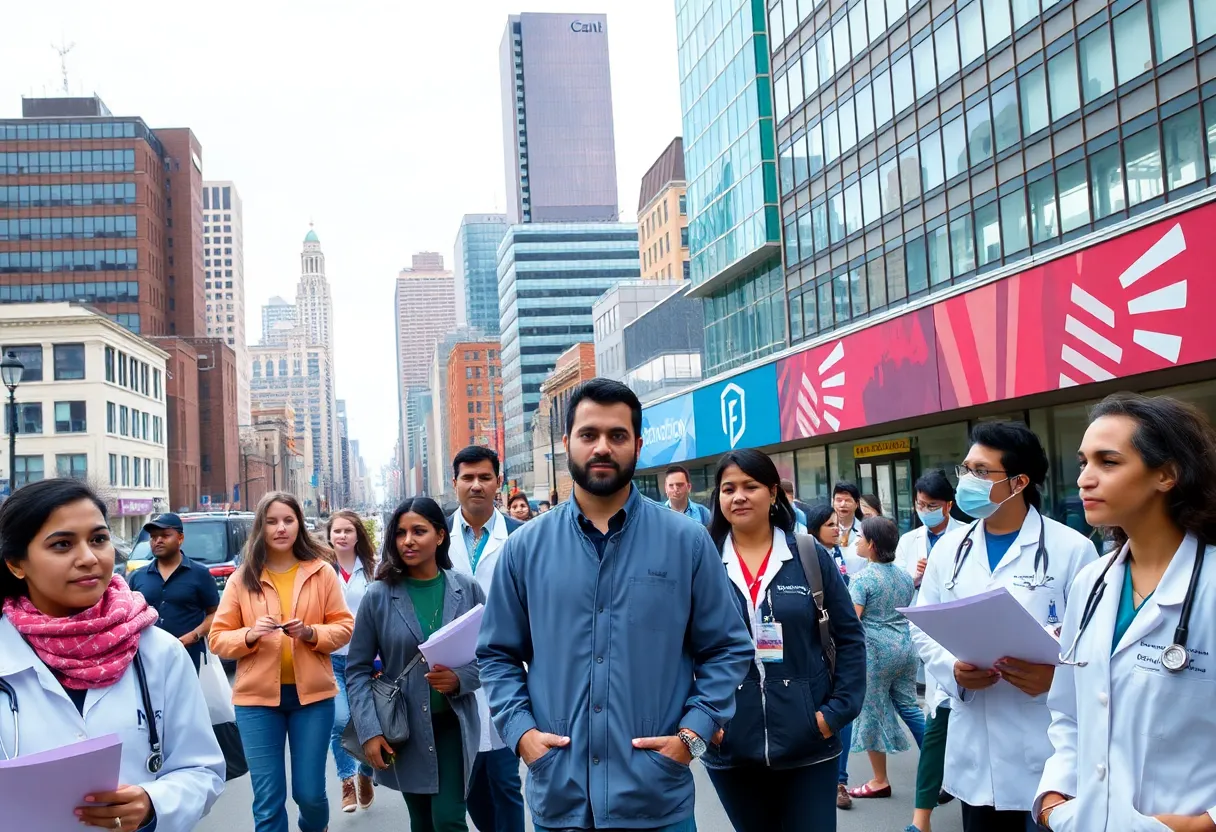News Summary
Massachusetts is grappling with severe economic challenges due to President Trump’s immigration policies, which might result in a $1 billion drop in tax revenue and significant GDP losses. Analysts warn that a decline in immigrant labor could lead to job shortages in vital sectors, adversely affecting local businesses and communities. As legal challenges arise against these policies, the future of the state’s economy and labor market becomes uncertain, with predictions of worsening conditions by 2028 if current regulations persist.
Massachusetts is facing significant economic challenges as experts warn that President Donald Trump’s immigration policies could lead to a dramatic decline in tax revenue and overall economic growth. The forecast suggests a potential $1 billion drop in tax revenue and a GDP decrease of at least $12.8 billion as the state grapples with the implications of stricter immigration regulations and increased deportations.
Analysts Josh Bedi and Mark Williams have indicated that these negative economic effects could double by 2028 if current policies remain in place. This prediction stems from a broader analysis of how immigrants impact the Massachusetts economy; they argue that both legal and undocumented immigrants play essential roles in the state’s labor market.
Approximately 15% of the U.S. population consists of immigrants, with about 12 million classified as undocumented. In Massachusetts, immigrants fill vital “core roles” particularly within STEM-related fields, which are pivotal to the state’s knowledge-based economy. Rather than taking jobs from native-born citizens, immigrants often occupy positions that locals may not qualify for or may be unwilling to fill.
The economic landscape in Massachusetts has raised concerns among experts, particularly with a recent report from the Pioneer Institute. The findings illustrate challenges in job growth, ranking the state third from last nationally in job creation over the past five years, demonstrating a net contraction of 0.74% in employment opportunities.
Bedi emphasizes that to harness the economic potential of immigrants, less stringent regulations in the immigration system are necessary. As the state’s workforce becomes increasingly reliant on immigrant labor due to a declining birth rate and aging population, the recent changes in immigration policy could lead to shortages in sectors that depend heavily on immigrant contributions.
Industries such as health care, hospitality, and manufacturing are known for employing a significant number of immigrants. Should these immigrants be removed from the workforce, local businesses risk experiencing substantial disruptions in their operations and service delivery. The uncertainty surrounding immigration status could deter potential workers from applying for jobs, exacerbating the already challenging labor market environment.
One pressing issue involves the potential loss of temporary protection statuses, which could affect around 30,000 individuals in Massachusetts, predominantly from Haitian communities. This situation raises concerns regarding local employment dynamics and broader economic stability.
The Massachusetts immigrant population has been a substantial contributor to tax revenues and local economies, and their potential removal could create hardships for various communities and businesses. Local employers are already witnessing the adverse effects of fear surrounding deportation, resulting in a decline in job applications, the firing of existing workers, and overall business downturns.
Furthermore, the ramifications of changing immigration policies extend beyond immediate economic concerns. Financial strains on local governments and disruptions to social services may ensue, resulting in wider community impacts that stretch beyond uncomplicated economic metrics.
In response to these developments, various local organizations and advocacy groups, including the ACLU, have initiated legal actions challenging Trump’s immigration policies. They raise concerns about the potential unconstitutionality of these actions and their negative impacts on families and communities throughout Massachusetts.
As Massachusetts faces these critical economic challenges, the future of its labor market and overall economic health may hinge significantly on the evolving landscape of immigration policy and its enforcement.
Deeper Dive: News & Info About This Topic
- Immigration Impact: What Will Mass Deportations Look Like?
- Boston Globe: Migrants, Economy, and Legal Status Terminations
- Cape Cod Times: Trump Deportations and Massachusetts Economy
- CNN: New Home for Undocumented Immigrants Under Trump
- Google Search: Massachusetts immigration impact

Author: STAFF HERE BOSTON WRITER
The BOSTON STAFF WRITER represents the experienced team at HEREBoston.com, your go-to source for actionable local news and information in Boston, Suffolk County, and beyond. Specializing in "news you can use," we cover essential topics like product reviews for personal and business needs, local business directories, politics, real estate trends, neighborhood insights, and state news affecting the area—with deep expertise drawn from years of dedicated reporting and strong community input, including local press releases and business updates. We deliver top reporting on high-value events such as Boston Marathon, Head of the Charles Regatta, and Boston Harborfest. Our coverage extends to key organizations like the Greater Boston Chamber of Commerce and Associated Industries of Massachusetts, plus leading businesses in finance, biotech, and insurance that power the local economy such as Fidelity Investments, Biogen, and Liberty Mutual Insurance. As part of the broader HERE network, we provide comprehensive, credible insights into Massachusetts's dynamic landscape.



